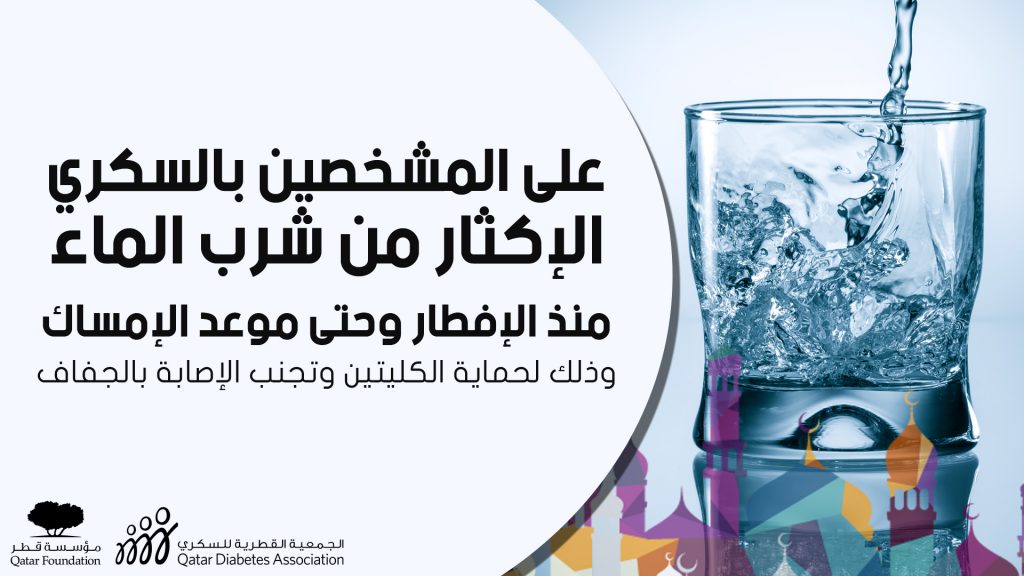- Home /
- ABOUT QDA
- /MEDIA CENTER
- /NEWS
- /Ramadan Advices
Ramadan Advices
21/05/2017

Ramadan is one of the five pillars of Islam and fasting is obligatory for all healthy adult Muslims. Exceptions exist for people with serious medical conditions, including many with diabetes. To evaluate your possibility of fasting, visit your doctor or diabetes educator to assess the risk. The month of Ramadan can bring dramatic changes in meal schedule, sleep patterns and daily rhythms which might affect diabetes and weight control. All people living with diabetes should:
- Attend a pre Ramadan assessment with HCP 6-8 weeks prior to Ramadan.
- Consult their doctors to adjust the dose, timing or type of medication to minimize the risks.
Risks association with fasting for people living with diabetes:
- High Blood Glucose
- Low Blood Glucose
- Dehydration & Thrombosis
- Diabetic Ketoacidosis
All patients should break their fast if:
- Blood glucose < 70 mg/dl
- Blood glucose >300mg/dl
- Symptoms of low blood glucose, high blood glucose, dehydration or acute illness occur.
Important tips to remember if you are fasting:
- People with diabetes should test their blood sugar levels more often during fasting hours, and especially on the first week of Ramadan, to ensure they are within target. Remember that blood glucose testing does not break fast.
- Be ready to break your fast in case of an increase or decrease in blood glucose levels at any time during the day even if it is minutes away from Maghrib prayer times.
- Make sure you drink plenty of water throughout the time between Maghrib until Imsak, and do not focus on drinking too much water at Suhoor time only. This is important to protect your kidneys and to prevent dehydration.
- Juices, sweetened drinks, dates, pastries and desserts all have a quick impact on increasing your blood glucose levels, try to avoid them or control the portions you are eating.
- Avoid eating foods that are high in fat such as sweets and fried foods to prevent a delayed rise in blood glucose and weight gain.
- To avoid a drop in blood glucose levels, eat a healthy Suhoor meal containing proteins such as yogurt, cheese, and high fiber food such as oats, foul, lentils and hummus.
- It is better to avoid moderate to high intensity exercise during the fasting hours and to exercise two hours after Iftar time
- Avoid midday napping (between Asr and Maghrib prayer times) which is considered the most common time for hypoglycemia.
- Make sure you delay the Suhoor meal to as late as possible before Imsak time; this is to decrease the risk of low blood glucose levels during fasting hours.
- Do not forget to keep a piece of candy, a box of juice, or glucose tablets with you when going to the mosque for Tarawih prayers or when exercising in case of hypoglycemia.
Talk with your diabetes educator and dietitian about the best way to fast safely.



